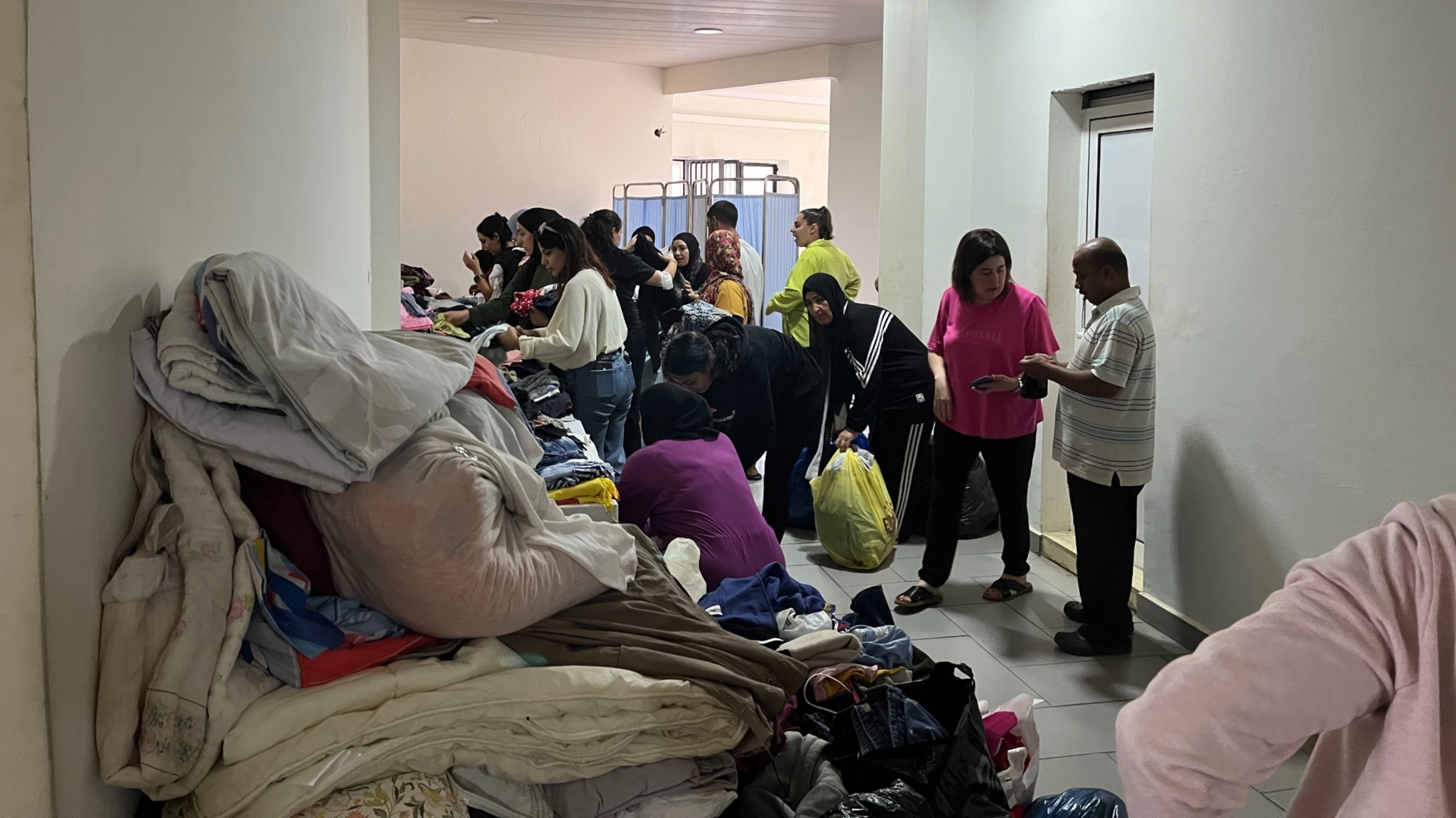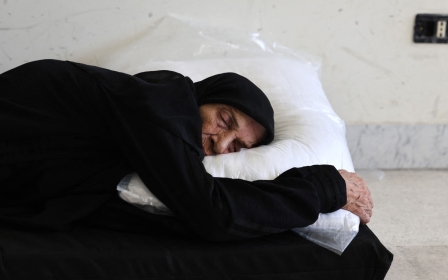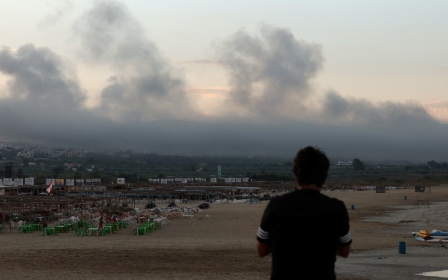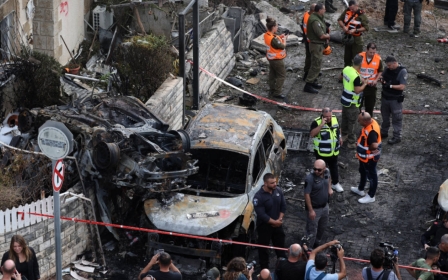Lebanese come together to support those displaced by Israeli attacks

Dhour el-Choueir’s municipal building, located next to the town’s large Catholic church, is flooded with clothes donated by residents for those who fled their homes in southern Lebanon.
The town, situated in the Christian-majority northern Metn region, has sheltered over 400 people so far, as Israel’s relentless bombing of southern and eastern Lebanon, as well as Beirut’s southern suburbs, an area colloquially known as Dahiyeh, continues.
“Dhour el-Choueir is always present in all times of crisis,” said Nisrine Ataya, the head of the media and activities department at the Shweir and Ain Sindyaneh Municipality.
Sectarian and political divisions have permeated Lebanese society and politics for decades, with resentment against Hezbollah, a Shia political party and military group, growing in the past year due to its armed conflict with Israel.
However, for those escaping Israel’s attacks on the south and the east, most of whom are Shia Muslims, these divisions seem to have been set aside, as Lebanese across the country rally to support them in their time of need.
New MEE newsletter: Jerusalem Dispatch
Sign up to get the latest insights and analysis on Israel-Palestine, alongside Turkey Unpacked and other MEE newsletters
“[Dhour el-Choueir] welcomed us beautifully, as if they were our own family,” said Yusra, a woman displaced from the southern town of Seddiqine. “They are taking very good care of us.”
“We are the children of the same country. We need to support each other.”
Ghada Abed al-Ahad al-Alam, who coordinates humanitarian aid efforts in the region, told Middle East Eye that she also managed shelters and aid distribution across several nearby villages.
This sentiment of solidarity was echoed in Lebanon’s Sunni-majority north, where residents took to the streets to joyfully welcome southerners and easterners arriving in Tripoli.
“It was a wedding,” said Abdel Wahab al-Sayed, who is currently helping coordinate efforts to house the displaced in the north.
“We waited for them at the city’s entrance to distribute water to them and welcome them,” he added.
“Everyone opened their hotels, centres and homes. Many people offered their apartments for free to whoever needs it.”
In Beirut’s Tariq el-Jdideh neighbourhood, where many residents oppose Hezbollah and have even violently clashed with the group in the past, southerners were greeted by local bikers, cheering as they welcomed them to the area.
“In times of crisis, everything is set aside,” said Sayed, referring to the country’s political divisions.
مسيرة دراجات نارية في طريق الجديدة
— ziad itani (@ZiadItanioff) September 24, 2024
تجول حول المراكز لترحب باهل الجنوب الكرام #لبنان_الصمود pic.twitter.com/3wuP2sF8IW
More than 700 people have been killed in Israeli attacks across Lebanon this week, with over 550 deaths reported on Monday alone. Additionally, more than 118,000 people have been displaced, according to the International Organization for Migration (IOM).
At least 1,540 people have been killed in Lebanon since the clashes between Israel and Hezbollah began on 8 October last year.
‘These are our people’
The sense of unity has not been consistent everywhere, as some Lebanese towns have refused to allow displaced Lebanese to seek shelter in their buildings.
'Our homes were destroyed in 2006 and we rebuilt them. If they destroy them again now, we will rebuild them again'
- Yusra, displaced person
These local decisions have not been well received by Ataya, who stressed the importance of unity.
“These are our people. We are all Lebanese. We must be united to stand by our people in the south, the Beqaa and Dahiyeh,” she said.
Syrian refugees fleeing the attacks have also reportedly faced discrimination when seeking shelter.
Ataya said her team would welcome anyone seeking refuge in her village, regardless of their nationality, as long as there was space.
While displaced Lebanese have largely been welcomed with open arms across the country, many, having experienced displacement before, remain determined to return to their homes.
In 2006, an estimated 1 million people were also forced to leave their hometowns during the month-long war between Israel and Hezbollah, which ended with Israel failing to achieve its objectives.
Around 1,200 Lebanese were killed in Israeli strikes during the war and many lost their homes.
“Our homes were destroyed in 2006 and we rebuilt them,” said Yusra. “If they destroy them again now, we will rebuild them again.”
“This year is more difficult than 2006. The bombing is more [intense], they are hitting people indiscriminately and they are not leaving a single town alone.”
She insists, however, that “we will go back - go back victorious”.
Middle East Eye delivers independent and unrivalled coverage and analysis of the Middle East, North Africa and beyond. To learn more about republishing this content and the associated fees, please fill out this form. More about MEE can be found here.





